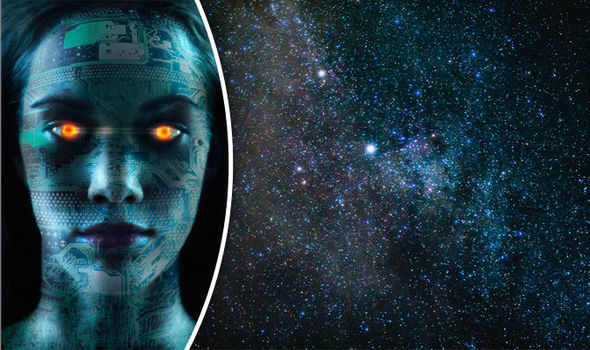Alien hunting gets HUGE boost as Artificial Intelligence joins search for extraterrestrial
Thu 15 Dec 2016, 14:30:50

ARTIFICIAL Intelligence (AI) has joined the hunt for alien life throughout the universe, massively increasing the chances of finding extra-terrestrials.
Machine learning software, based on the algorithms used by Google and Netflix, has joined the hunt for aliens.
The computer has the ability to analyse star systems and planets and can decipher whether the planets could potentially sustain life.
The AI uses machine learning, which is a type of man-made intelligence that allows computers to learn through data that it is continuously fed – rather than humans having to update the software.
The machine, created by researchers at the University of Toronto Scarborough, Canada, is believed to be up to 1,000 times faster at predicting whether a planet is potentially habitable and can work around the clock, unlike humans, making it a massive boost in the search for aliens.
Lead researcher of the study, Dan Tamayo from the Centre for Planetary Science at the university, said: “Machine learning offers a powerful way to tackle a problem in
astrophysics, and that's predicting whether planetary systems are stable.”
The research, published in the journal Astrophysical Journal Letters, explained: "In order to train our algorithms, we generated a data set of 5,000 N-body integrations of 3-planet systems over 107 orbits of the innermost body.
“We focus on 3- planet systems since there exists an analytic criterion for the case of two planets, and systems with more planets exhibit qualitatively similar behaviour.”
The researchers will also use the AI tool to study Nasa’s impending Transiting Exoplanet Survey Satellite (TESS) which is set to launch next year.
Nasa’s study will be a two-year mission that will look at the brightest stars that astronomers can find to see if they are part of a solar system.
Mr Tamayo said: “It could be a useful tool because predicting stability would allow us to learn more about the system, from the upper limits of mass to the eccentricities of these planets.
“It could be a very useful tool in better understanding those systems.”
Machine learning software, based on the algorithms used by Google and Netflix, has joined the hunt for aliens.
The computer has the ability to analyse star systems and planets and can decipher whether the planets could potentially sustain life.
The AI uses machine learning, which is a type of man-made intelligence that allows computers to learn through data that it is continuously fed – rather than humans having to update the software.
The machine, created by researchers at the University of Toronto Scarborough, Canada, is believed to be up to 1,000 times faster at predicting whether a planet is potentially habitable and can work around the clock, unlike humans, making it a massive boost in the search for aliens.
Lead researcher of the study, Dan Tamayo from the Centre for Planetary Science at the university, said: “Machine learning offers a powerful way to tackle a problem in
astrophysics, and that's predicting whether planetary systems are stable.”
The research, published in the journal Astrophysical Journal Letters, explained: "In order to train our algorithms, we generated a data set of 5,000 N-body integrations of 3-planet systems over 107 orbits of the innermost body.
“We focus on 3- planet systems since there exists an analytic criterion for the case of two planets, and systems with more planets exhibit qualitatively similar behaviour.”
The researchers will also use the AI tool to study Nasa’s impending Transiting Exoplanet Survey Satellite (TESS) which is set to launch next year.
Nasa’s study will be a two-year mission that will look at the brightest stars that astronomers can find to see if they are part of a solar system.
Mr Tamayo said: “It could be a useful tool because predicting stability would allow us to learn more about the system, from the upper limits of mass to the eccentricities of these planets.
“It could be a very useful tool in better understanding those systems.”
No Comments For This Post, Be first to write a Comment.
Most viewed from International
Most viewed from World
AIMIM News
Latest Urdu News
Most Viewed
May 26, 2020
Do you think Canada-India relations will improve under New PM Mark Carney?
Latest Videos View All
Like Us
Home
About Us
Advertise With Us
All Polls
Epaper Archives
Privacy Policy
Contact Us
Download Etemaad App
© 2025 Etemaad Daily News, All Rights Reserved.






.jpg)
.jpg)


.jpg)































